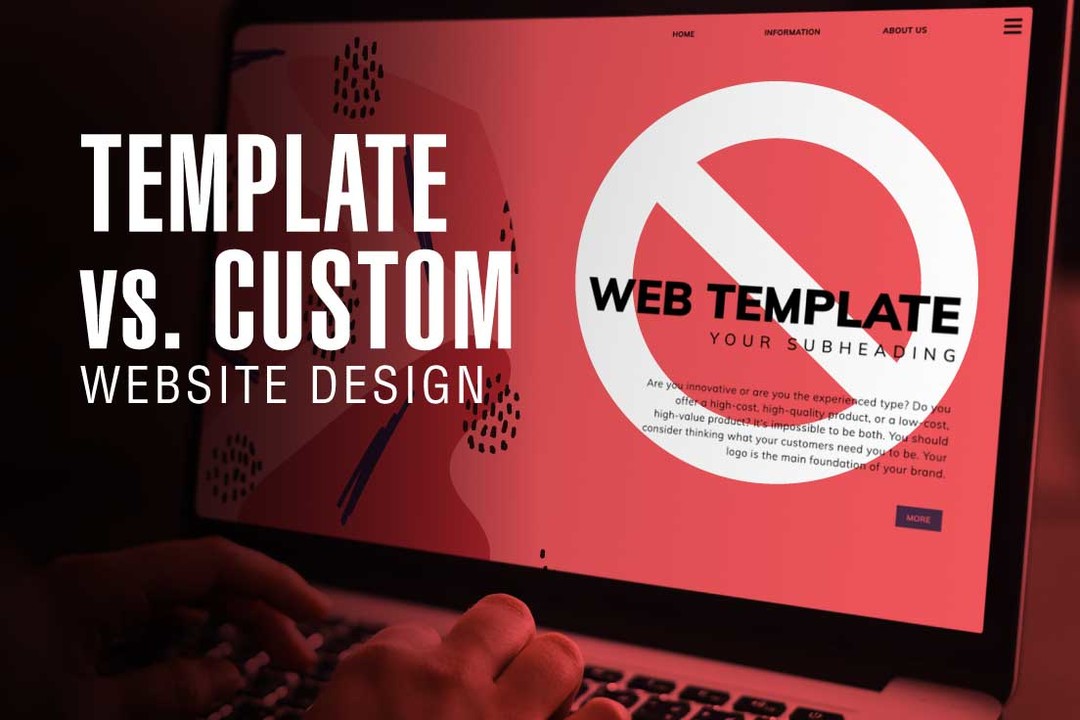Template vs. Custom Website: Which One is Right for Your Business?
 NiKHIL NAIR
NiKHIL NAIR
Creating a website is a crucial step in building your online presence. Whether you're a startup with limited resources or a well-established business, choosing between a template-based website and a custom-built website is an important decision. Each approach has its pros and cons, depending on your specific needs, budget, and goals.
In this blog, I will break down the key factors to help you decide which option suits your business best.
Why Choose a Template-Based Website?
Templates are pre-designed website layouts that can be customized to a certain extent. They are popular among startups and small businesses for several reasons:
1. Cost-Effectiveness
Templates are significantly cheaper than custom-built websites. If you’re operating on a tight budget, a template allows you to get your website up and running quickly without incurring high development costs.
2. Faster Setup
With a template, much of the work is already done. You can launch your site within days or weeks, depending on the level of customization you need.
3. User-Friendly
Templates are designed with usability in mind. They often come with drag-and-drop builders or user-friendly content management systems, making them accessible to those with limited technical knowledge.
4. Great for Simple Needs
If your business doesn’t require complex functionalities, templates can be a great solution. Many include basic features such as contact forms, galleries, and blogging capabilities.
When to Invest in a Custom-Built Website
A custom website is designed and developed from scratch, tailored specifically to your needs. It’s the go-to choice for businesses seeking greater flexibility and control.
1. Unique Brand Identity
If your brand demands a distinct visual style, a custom-built website allows for complete creative freedom. This is especially important for businesses that rely heavily on branding, such as high-profile or luxury brands.
2. Advanced Functionality
Templates have limitations when it comes to adding complex features. For example, if you need custom integrations, unique user flows, or dynamic content, a custom website can cater to those specific requirements.
3. Scalability
If your business is growing and you anticipate the need for additional features, a custom website provides the flexibility to scale. This is particularly useful for e-commerce platforms or businesses with long-term expansion plans.
4. Competitive Edge
Standing out in a crowded market often requires a unique online presence. A custom website ensures your site is as distinctive as your brand, helping you capture and retain customer attention.
Key Considerations When Making Your Choice
1. Brand Identity
Template: Offers pre-designed layouts but may limit creativity.
Custom Website: Allows for a fully tailored design that aligns perfectly with your brand.
2. Functionality
Template: Suitable for simple websites with standard features.
Custom Website: Ideal for complex requirements or unique features.
3. Scalability
Template: Limited ability to grow with your business.
Custom Website: Designed with future expansion in mind.
4. Budget
Template: Budget-friendly option for businesses with limited funds.
Custom Website: Requires a higher upfront investment but offers greater long-term value.
5. Technical Expertise
Template: Easy to manage, even without a developer.
Custom Website: May require ongoing technical support for maintenance and updates.
When a Custom Website is Worth the Investment
1. Large Businesses with Complex Needs
Enterprises with diverse product lines or services often need a custom-built website to effectively showcase their offerings.
2. E-commerce Platforms
For online stores that require advanced shopping cart functionalities or customized checkout processes, a custom website ensures smooth user experiences.
3. High-Profile Brands
For companies that want to stand out with a completely unique online presence, custom websites provide the creative freedom necessary to make a strong impression.
Conclusion
Deciding between a template and a custom website boils down to your business’s needs, goals, and resources.
If you’re a small business or startup with limited resources, a template-based website can be a practical and cost-effective solution.
If you’re looking for a distinctive, scalable, and highly functional site, a custom-built website will give you the flexibility and branding potential you need.
Assess your goals, budget, and long-term plans to determine which approach best aligns with your business vision. A website is an investment in your future, so choose wisely!
Subscribe to my newsletter
Read articles from NiKHIL NAIR directly inside your inbox. Subscribe to the newsletter, and don't miss out.
Written by
